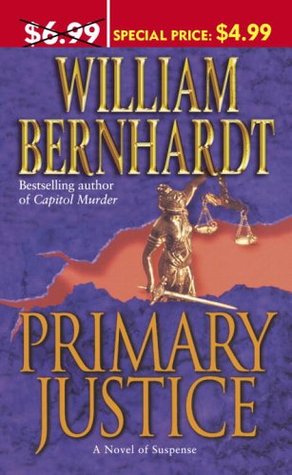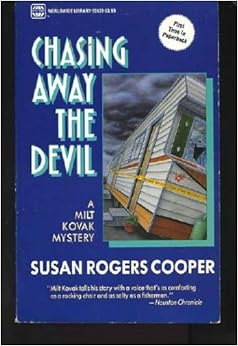Several
years ago I was invited to give a lecture at a Rice University summer
workshop for writers. I was given the assignment of discussing hooks
or opening lines – which led to one of the more enjoyable research
studies I've ever done. My research consisted almost primarily of
pulling out every mystery on my bookshelves (and believe me there
were a lot then and even more now) and reading the opening line or
paragraph. Then trying to figure out why it worked. If it did.
Sometimes it didn't. Hook me, that is. And that was the entire
reason for my lecture. How do you hook a reader, how do you keep
them reading your book beyond that first line, paragraph, page or
chapter? There's got to be a hook.
I
entitled this essay “The Last Camel Collapsed at Noon” because,
to me at least, Ken Follett's opening line in THE KEY TO REBECCA is
one of the greatest. Why? Because you learn so much from those six
simple words: You get a vague place – not a lot of camels on the
streets of Manhattan – one is to assume this is a desert area, and
one can also only assume that these people are in very deep doo-doo.
But
I found so many more wonderful opening lines, and all of them so
different that it led me to do my own classification of openers: Slap
in the Face, Character, Travel Log, and Puzzler, among others.
Here's the short list, honed down from a much, much larger one, that
fits perfectly in these categories.
Slap
in the Face: PRIMARY JUSTICE, William Bernardt – “'Once again,'
the man said, pulling the little girl along by the leash tied to his
wrist and hers. 'Tell me your name.'” DEAD BOLT, Jay Brandon –
“His child was on the ledge.” And one of my all time favorites,
SHOTGUN SATURDAY NIGHT, Bill Crider – “Sheriff Dan Rhodes knew it
was going to be a bad day when Bert Ramsey brought in the arm and
laid it on the desk.” In all three of these examples, I dare the
reader not to read on! These opening lines grab your attention and
keep you riveted.
For a really good example of a character opening I go way back to one of my favorite writers, Raymond Chandler, who wrote these opening lines for TROUBLE IS MY BUSINESS: “Anna Halsey was about two hundred and forty pounds of middle-aged putty faced woman in a black tailor-made suit. Her eyes were shiny black shoe buttons, her cheeks were as soft as suet and about the same color. She was sitting behind a black glass desk that looked like Napoleon's tomb and was smoking a cigarette in a black holder that was not quite as long as a rolled umbrella. She said, 'I need a man.'”
Sharyn
McCrumb once honored me by using my book, CHASING AWAY THE DEVIL, in
a class she was teaching as an example of how to hook the reader.
When she told me that, I had to go back to the book and read that
opening paragraph to figure out why. I knew I didn't kill anybody in
that first paragraph, knew there wasn't any great action. So why did
she single out this opening?
“The
third week in November is Pioneer Week in my home, Prophesy County,
Oklahoma. There's nothing in this goddam world I hate more than
Pioneer Week. They make us deputies dress up for it. In chaps. And
cowboy hats. And boots. And spurs. And real-live six-guns on our
hips. It's goddam ridiculous.” I had to read this a couple of
times before I realized that this, like Chandler's opening paragraph
above (although unfortunately not nearly as classic) is a character
opening. Milt Kovak's personality is smeared all over those few
sentences. The reader knows, right off the bat, what kind of person
he/she's going to be sharing the next several hundred pages with.
Travel
Log: THE JUDAS GOAT, Robert B. Parker – “Hugh Dixon's home sat
on a hill in Weston and looked out over the low Massachusetts hills
as if asphalt had not been invented yet.” Marcia Muller often
opens her books with vivid descriptions of northern California. But
her opening lines for PENNIES ON A DEAD WOMAN'S EYES – “At first
they were going to kill me. Then they changed their minds and only
took away thirty-six years of my life” – is a good example of
the Puzzler category. Others are Joseph Wambaugh's opening line in
the THE ONION FIELD, “The gardener was a thief,” Barbara
Michaels' opener for THE DARK ON THE OTHER SIDE, “The
house talked,” and Jonathan Kellerman's first line of OVER THE
EDGE, “It
was my first middle-of-the-night crisis call in three years.”
A
book does not necessarily start at the beginning of the story. A
writer can always go back and pick up the chronological beginning of
the story – a beginning that may not be overly dramatic. Of course
the beginning of the story needs to be there – but not necessarily
on page one. Page one should be reserved for the hook.
While writing FAT TUESDAY, Earl Emerson wrote these words on page 127, chapter eight: “I was trapped in a house with a lawyer, a bare-breasted woman, and a dead man. The rattlesnake in the paper sack only complicated matters.” He said it took him weeks to junk the book, re-plot the story,and regain the momentum of the narrative, but he was able to move those lines to page one, chapter one. Now that's a hook.
In
journalism they teach that the lead (or hook) must grab a reader by
the lapels, must punch him in the nose to make him read the story.
Seize his attention and don't let go. The hook in a good mystery
should punch the reader in the nose while at the same time seducing
him. The hook shouldn't answer any questions, but ask them. A
good mystery opener should seduce the reader into believing that the
answers to those questions are worth the wait.




Thanks for the mention, Susan!
ReplyDeleteI enjoyed the article, Susan, and particularly the examples.
ReplyDeleteI feel pathetic showing my ignorance, but at least if I live, I learn. I mentioned to Susan and Rob Lopresti that the opening line reminded me not of Ken Follett, but Elizabeth Peters. I googled and a moment later pulled up the title of one of her books, The Last Camel Died at Noon. Then Rob explained that Peters often included such references to others in her books. Unaware of that, I’d caught only the one. I’ll be reading her Ramses/Peabody novels in a new light.
Susan, I recall more than once that Fran Rizer remarked her favorite opening line came from Mickey Spillane, "The guy was dead as hell." For anyone interested, here's a 'guess the author and book list of top 100 lines in fiction'. In the comments, Jon L. Breen includes a couple of his mystery favorites.
ReplyDelete"They shoot the white girl first" - Toni Morrison, BELOVED.
ReplyDeleteI really like your categories, although many books deliberately fall into several. I think my new book GREENFELLAS opens with a character line: “I want that jerk dead this week,” said Sal Caetano. “Before my granddaughter is born. Call it a goddamned birthday present. She’ll come into a world that is better by having one less jackass in it.”
ReplyDeleteHere's a puzzler opening I have never forgotten: “June seventeenth turned out to be a six-biscuit day, and Vernon Lowe hated six-biscuit days.” – Robert Greer, The Devil’s Red Nickel
But to me the master of the opening line is Dick Francis, who always started at THE EXACT MOMENT his hero's life changed:
“I looked at my friend and saw a man who had robbed me.” –High Stakes
“I have told the drivers never on any account to pick up a hitchhiker, but of course one day they did, and by the time they reached my house he was dead.” –Driving Force
“Gordon Michael stood in the fountain with all his clothes on.” –Banker
“There was a God-awful cock-up in Bologna.” –The Danger
“Art Matthews shot himself, loudly and messily, in the center of the parade ring at Dunstable races.” –Nerve (It turns out the hero was standing next to him when he did it, which means this sentence tells us a lot about the hero, doesn't it?)
The late great Bill Farley, owner of the Seattle Mystery Bookshop, used to hand customers a copy of Earl Emerson's FAT TUESDAY and dare them to read the first paragraph and then stop. Sold a lot of books that way.
Leigh, I think it was in that same novel (THE LAST CAMEL...) that Peters begins one chapter with the opening line of REBECCA, changing only the place name. One example of the games she played.
ReplyDeleteSusan, I thoroughly enjoyed this post--great examples, great comments. And Rob, I agree that Dick Francis wrote masterful opening lines. When I was teaching, I made a practice of buying the newest Dick Francis novel before exam week started and vowing not to open it until I'd turned in my grades. I knew that if I read his first line before I finished grading, I wouldn't be able to stop reading, and my grades would be late. This way, that unopened novel was my motivation to stick to grading, hurry home from the registrar's office, and finally let myself relish that perfect opening line and the long rush that followed.
ReplyDeleteI've taught classes in mystery over the years, and opening lines has always been my favorite lecture. I ask the students to submit their favorites, and it's amazing what you see. Dick Francis does have great openers, and he's on my long list -- the one here is my short list. And B.K., I admire your restraint. I could never do that!
ReplyDeleteSusan, I'm sorry I didn't comment sooner, but sinus headaches have plagued me for several days. You know how I admire opening lines or hooks. Always talk about "The Last Camel Died At Noon" when I teach or write about opening lines. As a book seller we always discussed a book title, the jacket cover, the back synopsis or the inside jacket synopsis but then you get to the first page. The first sentence,the first paragraph or the first page better grab you or the buyer will put the book down and look at the next title that catches his attention.
ReplyDeleteGreat article and great descriptions of first pages.
Welcome to our group.
Thanks for an interesting blog. What else may I get that sort of info written in such a perfect approach? I have an undertaking that I am just now operating on, and I have been on the lookout for such info. https://www.cigstore.co/product-category/parliament/
ReplyDelete